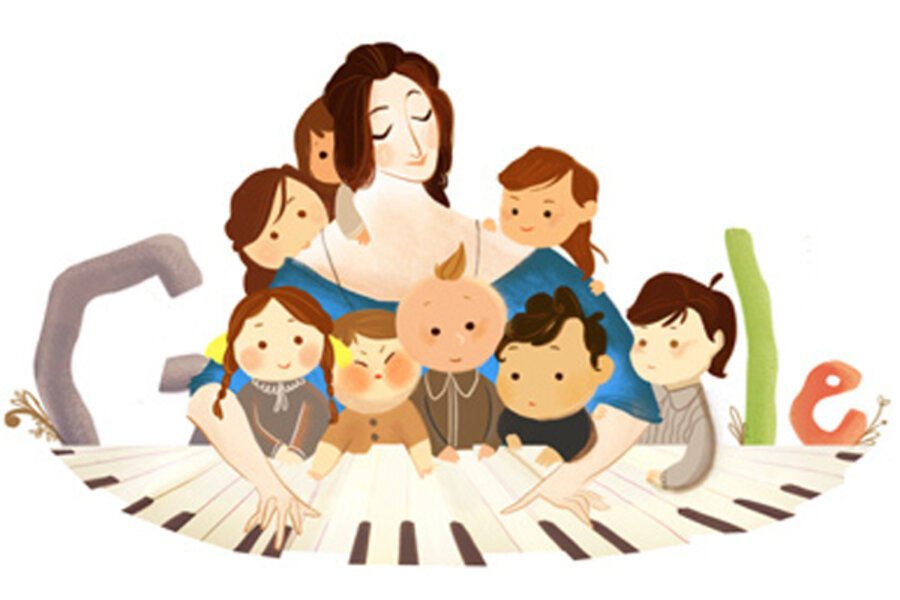Why Clara Schumann would still be one of today's sassiest musicians
Loading...
Were she alive today, Clara Schumann would be one of the hippest female artists around. A gifted concert pianist, Schumann’s biography busts open the corseted restrictions of the Victorian era with vibrant modern-day detail. Her innovative passion for music crumbled compositional boundaries with poetry, technical wit, and startling live performances, resulting in a career that spanned over six decades.
Not only did she defy the divisions separating work, performance, art as love, and family, she managed to do it all as a 19th century woman. Schumann's legacy was hot enough for Katherine Hepburn to play her in the 1947 flick, “Song of Love.”
Born Clara Josephine Wieck in 1819, Schumann was raised by a working, divorced mother and debuted as a concert pianist at age 9. She was deemed a child prodigy to nobody’s surprise. She even sued her own father in order to marry composer Robert Schumann and won in 1840, when she was 21 years old.
According to musicologist Nancy B. Reich, author of “Clara Schumann: The Artist and Woman,” Schumann not only made more money than her piano-playing husband but she also fought to fulfill the roles of performer and wife. Before they were married, Mr. Schumann tried to coax her away from her love of music, writing: “And if you were to be forgotten as an artist, would you not be beloved as a wife?... The wife stands even higher than the artist,” according to the New York Times. Evidently, Clara could not relinquish her love of music and continued to play.
Thanks in part to Ms. Reich’s biographical research, Clara Schumann’s musical legacy is far from forgotten.
Slide on a recording of Schumann and you’ll be listening to a symphony that splashes scores of real perspective on our continued musical evolution.
The Schumann marriage has long been romanticized by the public and mystique continues to shroud the two musical giants. However, only hypothesis can be surmised from their personal correspondence.
Factual evidence paints an altogether different picture, with four of their eight children dead before adulthood, one institutionalized, and Mr. Schumann’s mental deterioration and eventual death from syphilis.
Schumann’s extraordinary dedication to her craft continues to inspire today: “How had she succeeded in overcoming a lost childhood, an absent mother, a dominating father, a bitter battle with her father over her love for Robert Schumann?” asks Reich, “how had she achieved this position as a great concert artist who performed for over sixty years, probably longer than anyone else in 19th century Europe?”
Schumann’s primary testimony can be found in the remnants of her diaries and in the echoes of her music.
Despite being widowed at 36, Schumann continued to act as her own agent. She independently supported the surviving children, refused all loans, and somehow still found time to hang out with Johannes Brahms, Frédéric Chopin, and Felix Mendelssohn. No wonder she was known as the “Priestess.”







